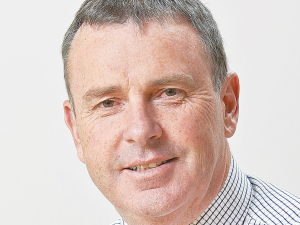Another Windfall for Fonterra Farmers, Unit Holders
Fonterra farmer shareholders and unit holders are in line for another payment in April.
 Alliance Group’s Murray Behrent believes the company’s additional capacity will allow more bobby calves to be processed this season to meet the needs of farmers.
Alliance Group’s Murray Behrent believes the company’s additional capacity will allow more bobby calves to be processed this season to meet the needs of farmers.
Alliance Group is lifting processing capacity by 24% ahead of an expected increase in bobby calf volumes.
The co-operative says processing capacity at its Levin, Nelson, Smithfield (Timaru) and Lorneville (Invercargill) plants will be boosted in the coming weeks.
This follows a decision last year by Fonterra to update its supply conditions and require all non-replacement calves to enter a value stream. From mid-June this year, the dairy co-operative wants all non-replacement calves to go as dairy beef finishing, veal production or the pet food industry.
Fonterra's new rules around bobby calves stem from criticisms arond the handling of bobby calves on farms. Last year the co-op told its farmer suppliers that as part of its strategic choice to 'lead in sustainability', it places a strong emphasis on calf wellbeing and a big part of this is ensuring that all dairy calves have a useful life.
Murray Behrent, Alliance interim general manager livestock and shareholder services, says the meat processor is committed to supporting farmers, particularly during a potential pinch point when bobby calf processing coincides with lamb processing.
"There will be significantly more bobby calves requiring processing at plants but we are confident the additional capacity provided will enable us to meet the needs of farmers as best as we can over the course of the season, without compromising lamb or beef processing volumes," he says.
"Additional lamb/sheep capacity has also been added at our Dannevirke, Nelson and Pukeuri (Oamaru) plants to ensure we meet the demands of our shareholders and suppliers."
Fonterra has introduced a new clause in the terms of supply outlining requirements around the management of non-replacement calves to continue to improve sustainability.
Consumer pressure is increasing and all dairy animals must be seen to have what could be considered to be a 'useful' life. Euthanasia on-farm can still be performed, but only when there are humane reasons or there is no alternative.
Meanwhile, Alliance Group is launching a mandatory user-friendly app that will enable farmers to streamline booking management for bobby calves and automatically sync with transport companies.
"Our new app will also save time and effort for farmers, enabling them to delegate booking responsibilities to a calf reaer or another staff member," says Behrent.
Alliance is encouraging sheep and beef farmers to draft their animals before the start of the bobby calf season in their region.
"Calf numbers are forecast to be higher this season compared to last year. We encourage farmers to talk to their Alliance livestock representative to forecast the number of lambs they have for processing."
Controls on the movement of fruit and vegetables in the Auckland suburb of Mt Roskill have been lifted.
Fonterra farmer shareholders and unit holders are in line for another payment in April.
Farmers are being encouraged to take a closer look at the refrigerants running inside their on-farm systems, as international and domestic pressure continues to build on high global warming potential (GWP) 400-series refrigerants.
As expected, Fonterra has lifted its 2025-26 forecast farmgate milk price mid-point to $9.50/kgMS.
Bovonic says a return on investment study has found its automated mastitis detection technology, QuadSense, is delivering financial, labour, and animal-health benefits on New Zealand dairy farms worth an estimated $29,547 per season.
Pāmu has welcomed ten new apprentices into its 2026 intake, marking the second year of a scheme designed to equip the next generation of farmers with the skills, knowledge, and experience needed for a thriving career in agriculture.

OPINION: Here w go: the election date is set for November 7 and the politicians are out of the gate…
OPINION: ECan data was released a few days ago showing Canterbury farmers have made “giant strides on environmental performance”.